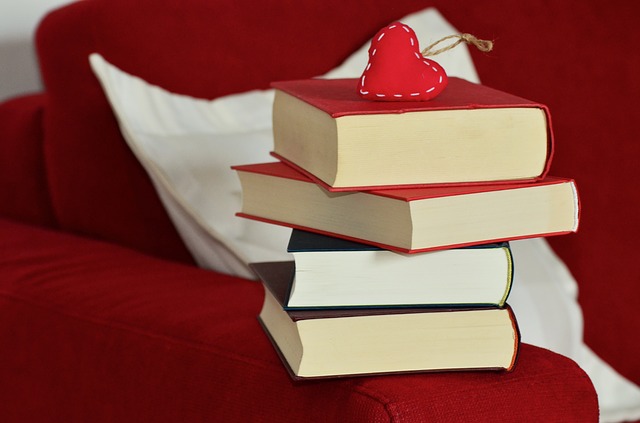.
Watch:
Glossary
- spine – the part of a book that the pages are fastened onto
- backbone – the part of something that provides strength and support
- face – the front or surface of an object (e.g. a book)
- notch – a V-shaped cut in a hard surface
- to stitch – to fasten, join, or close with or as if with stitches
- scribe – a person who wrote copies of things such as letters or documents before printing was invented
- core – the basic and most important part of something
Answer the following questions:
- Why were books luxury items first?
- When did consumption of books by a large audience begin?
- What is the core purpose of a physical book (according to the speaker)?
- What are the advantages of a physical book over one that’s on a screen (in the designer’s opinion)?
- How do you understand the statement: “Books will outlast us no matter who we are”?
Practice Makes Perfect
Fill in the gaps with one of the prepositions below in bold. Some of them can be used more than once.
into by from away
down with in on off
The physical object of a book is almost like a person.
Before there were books, ancient civilizations would record things (1) … notches (2) … bones or rocks or what have you.
They all had to be done (3) … hand, which became the work of what we know as a scribe.
Book covers started to come (4) … use in the early nineteenth century, and they were called dust wrappers. They usually had advertising on them. So people would take them (5) … and throw them (6) …. .
I believe that the core purpose of a physical book is to record our existence and to leave it behind on a shelf, in a library, (7) … a home, for generations (8) …. the road to understand where they came (9) …. , that people went through some of the same things that they are going through, and it’s like a dialogue that you have (10) … the author.
ANSWERS: 1. by; 2. on; 3. by; 4. into; 5. off; 6. away; 7. in; 8. down; 9. from; 10. with
Discuss:
Are books important to you?
What kinds of books do you like?
Do you lend books to your friends/colleagues?
Do you borrow books from a library?
What do you think of the idea of E-books?
Do you ever read the last page before you start reading a book?
Explore it more to create your own teaching-learning experience!
5 Books to Read If You’re Stuck at Home Thanks to Coronavirus
A Columbia professor offers a brilliant reading list of outbreak-related books.
Read:
5-books-to-read-if-youre-stuck-at-home-thanks-to-coronavirus
(1486)





